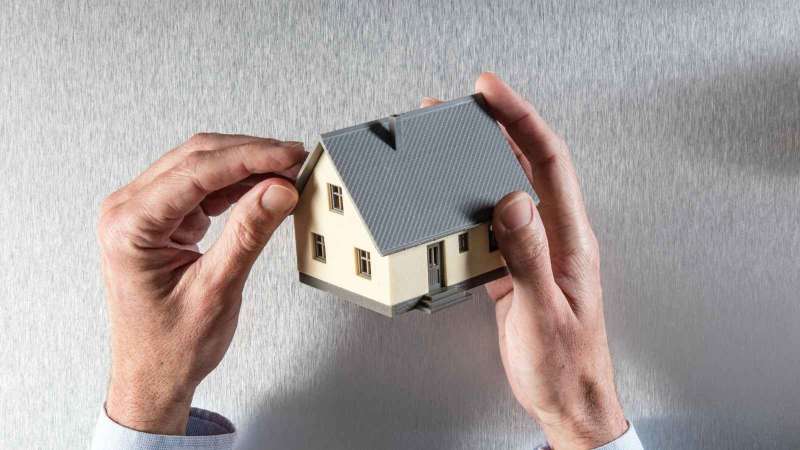Selling a house in poor condition limits your options, especially if you don’t have the budget for repairs or upgrades to attract traditional buyers. But selling a property as-is is possible, even without going into debt. Quick-sale companies and cash buyers are often interested in homes that need work, allowing you to sell without taking on extra costs. Selling an uninhabitable property simply requires a different approach compared to selling a home in good condition.
Why Sell a House As-Is?
There are several reasons you might choose to sell a property quickly without making repairs or upgrades:
Avoid Repair Costs
Major repairs and renovations can be expensive and time-consuming. By selling as-is, you save money upfront and attract buyers willing to purchase the property in its current state.
Save Time
If you need to sell quickly, avoiding repairs and upgrades can save a lot of time. Selling as-is can really speed things up.
Attract Cash Buyers and Quick-Sale Companies
Many cash buyers and companies focused on quick sales are especially interested in properties that need some work. They often make cash offers and can move faster than regular buyers.
How to Sell a House in Poor Condition: Key Options
Sell to a Quick-Sale Company
Quick-sale property companies are often the fastest route to a sale. They typically buy homes in any condition, so you don’t need to worry about costly repairs or prepping the property for viewings.
Sell to Cash Buyers or Investors
Some cash buyers and property investors look for "fixer-uppers" they can refurbish and resell. Selling directly to these buyers can be a good option if you want to sell quickly.
List on the Open Market
You can also list your property with an estate agent, but be prepared for lower offers and potentially a longer time on the market. Traditional buyers may be less inclined to take on a property with significant issues.
What Conditions Are Typically Acceptable?
Quick-sale companies and cash buyers often purchase properties regardless of their state. Common conditions include:
Structural Issues: Properties with foundation cracks or dampness are often acceptable.
Outdated Interiors: Older kitchens, bathrooms, or décor aren’t usually a problem.
Environmental Concerns: Overgrown gardens or poor curb appeal aren’t deal-breakers for cash buyers.
Read also: Marketing a Damaged Property in Scotland for Sale
How to Do a Valuation for a House in Bad Condition
Valuing a property in poor condition requires a practical approach, as its issues directly impact its marketability and appeal.
Assess the Property's Condition
Evaluate the condition of the property in detail. Note any structural issues, outdated systems (like plumbing or wiring), and cosmetic concerns. Understanding the full scope of necessary repairs allows for an accurate, well-rounded valuation that reflects the true market position of the property.
Research Comparable Sales
Next, look at similar homes in your area that have recently sold, ideally those in good condition with similar size and features. These comparables give you a baseline market value, which can then be adjusted based on the repairs needed for your property.
Estimate Repair Costs
To refine your valuation, estimate the cost of repairs necessary to bring the property to a market-ready state. Consider both minor and major repairs, from cosmetic improvements to structural fixes, which may be needed to appeal to a broader range of buyers. Subtracting the estimated repair costs from your baseline market value provides a clearer sense of the property’s current worth.
Adjust for Market Limitations
Houses in poor condition usually attract fewer buyers, especially those who need mortgage financing, as lenders may hesitate to finance properties needing substantial work. Because of this, it may be wise to reduce the estimated value to reflect a more limited buyer pool. This adjustment helps set a competitive price and improves the likelihood of a quick sale.
Quick Answers to Related Questions
1. Do I Need to Fix Everything Before Selling My House?
No, you don’t have to fix everything. Quick-sale companies buy properties as-is, which allows you to skip repairs entirely.
2. How Quickly Can a House Sale Go Through in Scotland?
A traditional sale can take several months, but with a quick-sale company, the process may be completed in as little as 7-14 days.
3. What Type of Properties Are Quick-Sale Buyers Interested In?
Quick-sale buyers are open to various properties, including those with structural issues, outdated interiors, or low curb appeal.
4. Is It Worth Selling to a House Buying Company?
If speed and simplicity are your priorities, selling to a house buying company can be worth it. This option typically provides a cash-based solution with fewer delays.
Ready to Sell As-Is?
If you’re ready to sell your property in Scotland without dealing with repairs or a lengthy sale process, consider Scotland's Property Buyer. We buy properties in any condition, offering a quick, cash-based process so you can move forward without the hassle. Contact us for a free consultation to learn how we can help you sell fast, whether you’re in Glasgow, Edinburgh, Linlithgow, or Dundee.



































